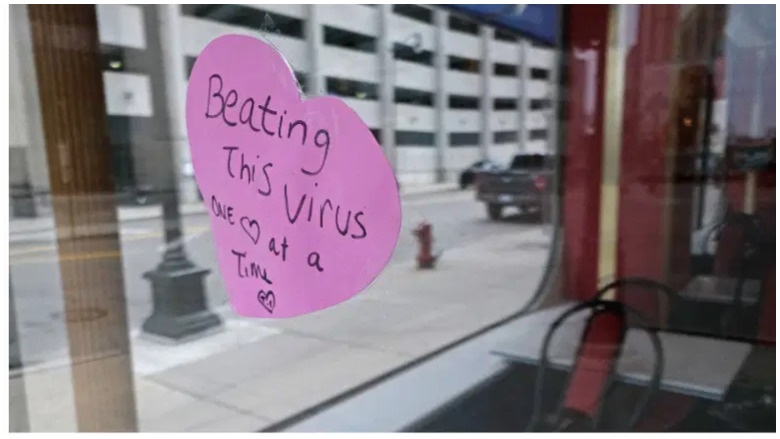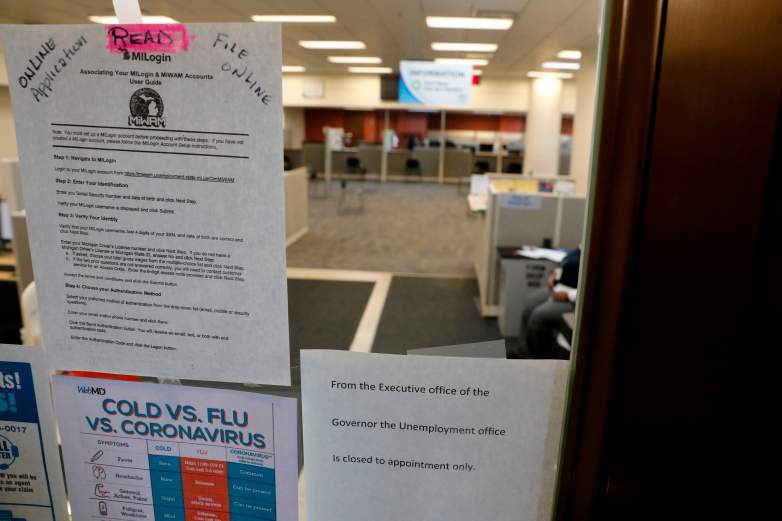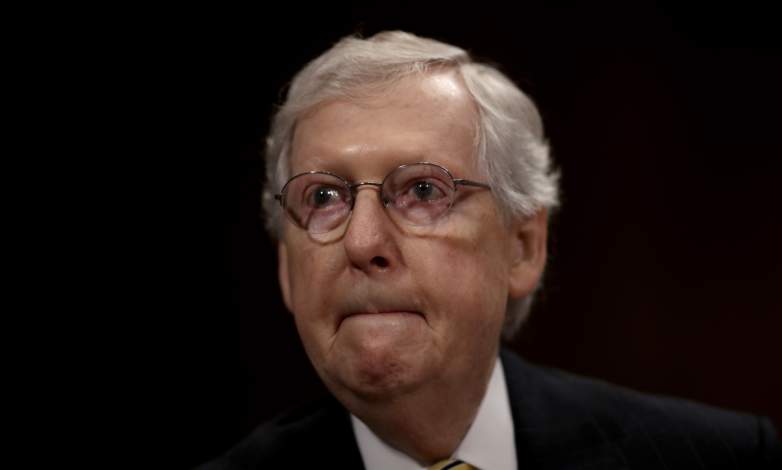
Getty Unemployment benefits for COVID-19 could be extended.
Many Americans have counted on the $600 weekly COVID-19 unemployment benefit to get through the COVID-19 pandemic. Those extra benefits are about to run out.
If the Republican-led Senate agrees to an extension, how much can Americans expect to receive? Although that’s not clear, and an extension isn’t guaranteed, comments from some top Trump administration officials make it clear that people could probably expect less this time around than $600 a week, perhaps $200 to $400 instead. That’s because some Republicans believe the higher $600 gave people an incentive not to work.
According to Bloomberg, The Bipartisan Policy Center has floated making the extended benefit $400 for two months, but some Republicans in the Senate are supporting $200 or less.
The extra $600 unemployment benefit is set to expire in 49 states on July 25, according to The Washington Post, which added that the benefits expire in New York state on July 26.
A lot of people are relying on those checks. According to Vox, through June, 33 million Americans received unemployment benefits. Congress approved the $600 extra benefits after COVID-19 first hit. Unemployed workers get that amount in addition to state unemployment benefits. It’s up to the Republican-controlled Senate whether to pass an extension; Democrats already have done so in the House. The Senate Majority Leader has indicated debate on the second stimulus package could begin the third week of July in the Senate. It’s expected the extension would come then, if it does.
“The Coronavirus Aid, Relief, and Economic Security Act (CARES) Act substantially expanded Unemployment Insurance (UI) in order to help workers losing jobs as a result of the Covid-19 pandemic. One provision of the act creates an additional $600 weekly benefit known as the Federal Pandemic Unemployment Compensation. The size of the payment—$600—is designed to replace 100 percent of the mean U.S. wage when combined with mean state UI benefits,” a working paper from researchers with the University of Chicago explained in May.
Here’s what you need to know:
The GOP & White House Have Indicated a Lower Amount Is Being Considered

GettyA State of Michigan Unemployment Agency office is seen closed because of coronavirus, COVID-19, in Detroit, Michigan on March 26, 2020.
Republicans were once firmly opposed to any extension of the $600 benefit.
However, according to The Washington Post, top Trump administration officials have telegraphed recently that they’re open to an extension, but not $600.
Some Republicans believe the $600 extra weekly benefit provides too much of an incentive not to work. According to the Post, Treasury Secretary Steven Mnuchin said on television that the administration wants to make sure extended benefits wouldn’t exceed 100% of the worker’s past wages.
President Donald Trump’s economic adviser Larry Kudlow indicated the administration is open to unemployment “reforms,” the Post reported, adding that one compromise being floated would cut the extra $600 to between $200 and $400 in addition to sending out a second stimulus check to some Americans. A spokesman for the White House told the Post that the president doesn’t support extending the full $600 but might be open to less.
The University of Chicago article found that:
68% of unemployed workers who are eligible for UI will receive benefits which exceed lost earnings. The median replacement rate is 134%, and one out of five eligible unemployed workers will receive benefits at least twice as large as their lost earnings. Thus, the CARES Act actually provides income expansion rather than replacement for most unemployed workers. We also show that there is sizable variation in the effects of the CARES Act across occupations and across states, with important distributional consequences. For example, the median retail worker who is laid-o can collect 142% of their prior wage in UI, while grocery workers are not receiving any automatic pay increases. Janitors working at businesses that remain open do not necessarily receive any hazard pay, while unemployed janitors who worked at businesses that shut down can collect 158% of their prior wages.
Majority Leader Mitch McConnell Has Predicted a Second Stimulus Package Will Happen

GettySenate Majority Leader Mitch McConnell.
Senate Majority Leader Mitch McConnell is “predicting” that a second COVID-19 stimulus “rescue package” will happen, and he said it “could well” include second direct stimulus check payments to some Americans.
What form it will take, however, and whether people will get second stimulus checks, and in what amount, is all uncertain. According to Bloomberg, McConnell, a Republican, made the comments at a news conference in his home state of Kentucky. The news site reported that McConnell said: “We shouldn’t lightly add more to the national debt, but I’m predicting that we will have one more rescue package, which we’ll begin to debate and discuss next week.”
McConnell’s comments came on Monday, July 6, in Kentucky. Could there be a more stringent income limit on a second stimulus check? McConnell hinted maybe so, saying, “I think the people who have been hit the hardest are people who make about $40,000 a year or less. And many of them work in the hospitality industry.” He said the hospitality industry was hit hard. He added that the Senate will consider a proposal on July 20.
Trump said recently, “We will be doing another stimulus package, it will be very good, very generous.” Asked if there would be a second check, Trump also said, “We are, we are” and said it would be “very dramatic, very good.”
READ NEXT: Remembering Summer Taylor, the Seattle Protester Struck by a Car